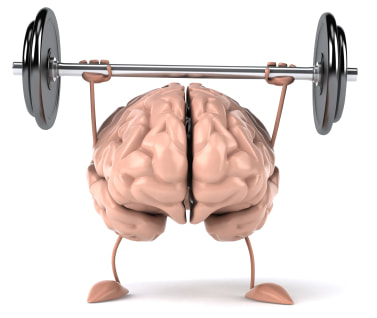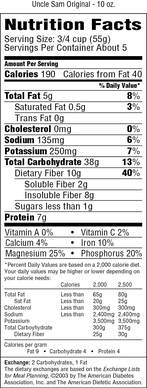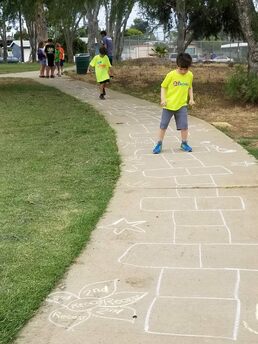 Monkey see, monkey do.’ We are all familiar with that phrase, referring to someone or something that copies another person. However, did you know it also might accurately represent a great strategy for parents to help their children develop good eating habits and activity levels? Research suggests that children whose parents play an active role in their health education while they grow up are less likely to become overweight, obese, and develop unhealthy habits (4). Parents, you play an exciting role in your child’s life. Kids are like sponges and they absorb all sorts of information around them. If you go out for a run, bike ride, or pickup soccer game they will see you and 9 times out of 10 will probably want to join you! As a parent, you are creating and influencing the habits that your children will rely on for the rest of their lives. There are many ways to go about combating obesity but one of the most important weapons in our arsenal is right at home. At 2nd Recess, we encourage parents to join their kids in active play because we know of the power they hold to make a difference in the health of their child. If you are a parent and want to know how to inspire your family to be healthy and active get started by visiting our website, www.2ndrecess.org, or the Let’sMove.gov site. Try incorporating one of the tips below to jump start your family health routine! 1. Be active (1)! 2. Encourage playing outside (2). 3. Have dinner as a family (3). 4. Learn about healthy habits as a family. References 1. M. Y. Hood and others, “Parental Eating Attitudes and the Development of Obesity in Children: The Framingham Children’s Study,” International Journal of Obesity 24, no. 10 (2000): 1319. 2. T. Baranowski and others, “Observations on Physical Activity in Physical Locations: Age, Gender, Ethnicity, and Month Effects,” Research Quarterly for Exercise and Sport 64, no. 2 (1993): 127–33; J. F. Sallis and others, “Correlates of Physical Activity at Home in Mexican-American and Anglo-American Preschool Children,” Health Psychology 12, no. 5 (1993): 390–98. 3. M. W. Gillman and others, “Family Dinner and Diet Quality among Older Children and Adolescents,” Archives of Family Medicine 9, no. 3 (2000): 235–40; D. Neumark-Sztainer and others, “Family Meal Pat- terns: Associations with Sociodemographic Characteristics and Improved Dietary Intake among Adoles- cents,” Journal of the American Dietetic Association 103, no. 3 (2003): 317–22. 4. Ana C. Lindsay, Katarina M. Sussner, Juhee Kim, and Steven Gortmaker, “The Role of Parenting in Preventing Childhood Obesity,” The Future of Children 16, 1 (2006): 169-86.
0 Comments
 We have all probably heard anecdotally that exercise is good for the brain. Well now, two Stanford researchers are out to prove just that. These researchers think that exercise stimulates your muscles to release a combination of different molecules that communicate with other cells, ultimately leading to positive changes in the brain. Exercise may boost brain power. If these researchers are successful, it could lead to changes in how the government and school districts view the role of physical education in the development of our children. One can only wish for a day when 60 minutes of physical activity per day is a norm in our schools! If you are interested in learning more, visit this link to the National Institute of Health. Remember, you can help your kids get their 60 minutes of physical activity by being creative and encouraging family exercise.  Does it feel as though you have tried everything to get your child to eat healthy with little or no luck? With schedules becoming increasingly complex and children who are continuously ‘on the go,’ finding time to ensure that your child is receiving proper nutrition can be a daunting task. Have no fear! – Follow these five simple rules, and getting your child nutritionally READYcan be both simple and fun! Read Nutrition Facts and Serving SizeIt’s no secret that ‘moderation is key’ when attempting to keep your family healthy. However, that simple concept has become increasingly tricky. It is a common misconception that if something is “healthy” you should be able to indulge and eat as much as you want. However, this is simply not the case. Although trail mix might be a healthy after school snack, handing your child an entire bag of trail mix might not be the best option. Children often do not take the time to look at and consider to amount of servings available within their favorite treats. Try This:
Explain and Educate Have you ever encountered a child who asks “why” when presented when any given situation? Children are naturally curious creatures, as they continuously explore the world around them. If you tell a child “because I said so” after telling them to eat their veggies, you will likely be met with resistance. However, if you explain to the children that their favorite fruits and veggies have powerful vitamins and minerals that will give them the energy to play, you will likely receive a more positive response. Try This:
Add variety Your child might not like apples and he/she might not like peanut butter. However, if you put these two together, your child might find a tasty treat that both tastes good AND is good for their body. Experiment with different healthy foods and combinations. Adding a variety of food will not only expand upon the possibility of your child obtaining the most nutrients possible, but this will also enable you and your child to find new healthy “favorites” to add to the dinner table. According to Livestrong.com, when you encourage your child to eat a large variety of new foods, you are increasing your chances of a balanced, well rounded diet that will carry into adulthood (Kelley, 2014). Try This:
Days in advance Prepare, Prepare, Prepare! When you are running from work, to school, to extracurricular activities, it is inevitable that you will have various evenings that leave little time to prepare nutritious snacks and meals. This is where preparation comes into play. If you already have nutritious snacks prepared and ready to go, eating healthy can be simple and fast. One particular blog from Eartheasy.com (2014) discusses that the benefits of meal prepping range much farther than improved health. Additionally, meal prepping can save both time and money, leaving you with the resources necessary to spend less time preparing meals, and more time enjoying these with your family. Try this:
You At the end of the day, your children look to you as their role model(s). As a parent, you cannot expect your children to try a new food if you turn your nose up at the same dish. Children look at adults every day for added motivation and inspiration. Equally as important as eating healthy foods is your attitude toward health and nutrition. Try this:
Resources Kelley, J. W. (2014, January 13). The Importance of Healthy Eating in Children. Retrieved February 15, 2016, from http://www.livestrong.com/article/74307-importance-eating-children/ How to Simplify Meal Prepping. (2014). Retrieved February 16, 2016, from http://eartheasy.com/eat_simplify_meal_preparation.html  Your heart is what keeps you going day in and day out. This month take a moment to check in on your heart’s fitness! Did you know that even though most people put their hand on the left side of their chest to feel their heart, your heart is actually located almost in the center of your chest – between your two lungs? How about: That an adult’s heart is approximately the size of two clenched fists. A child’s heart is approximately the size of one fist.
There are several factors that can affect the health of your heart and even put you at risk for developing heart disease. Some risk factors include:
Be a positive role model by sharing your passion for heart health with your family. For instance, kids of active moms are twice as likely to be active themselves. Pick one thing you can improve upon and make a change. 2nd Recess is all about inspiring others to be active and help them establish healthy habits. If you move then we move, and vice a versa! |
2nd recessInformation about health, fitness, and nutrition. Archives
April 2021
Subjects
All
|

 RSS Feed
RSS Feed